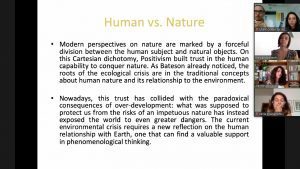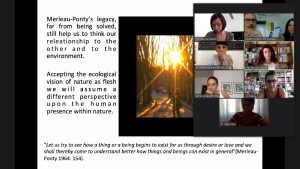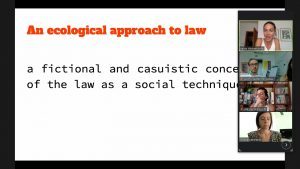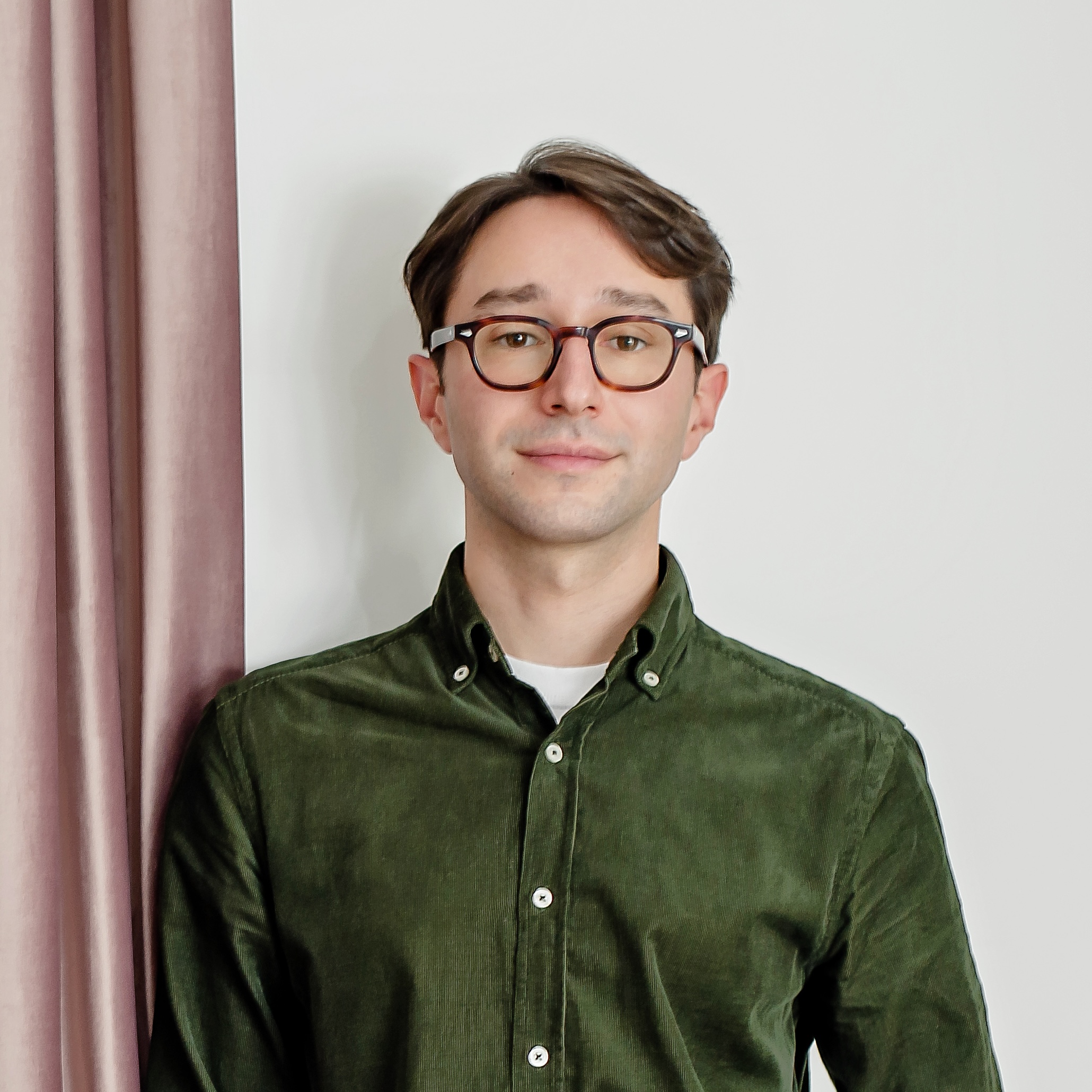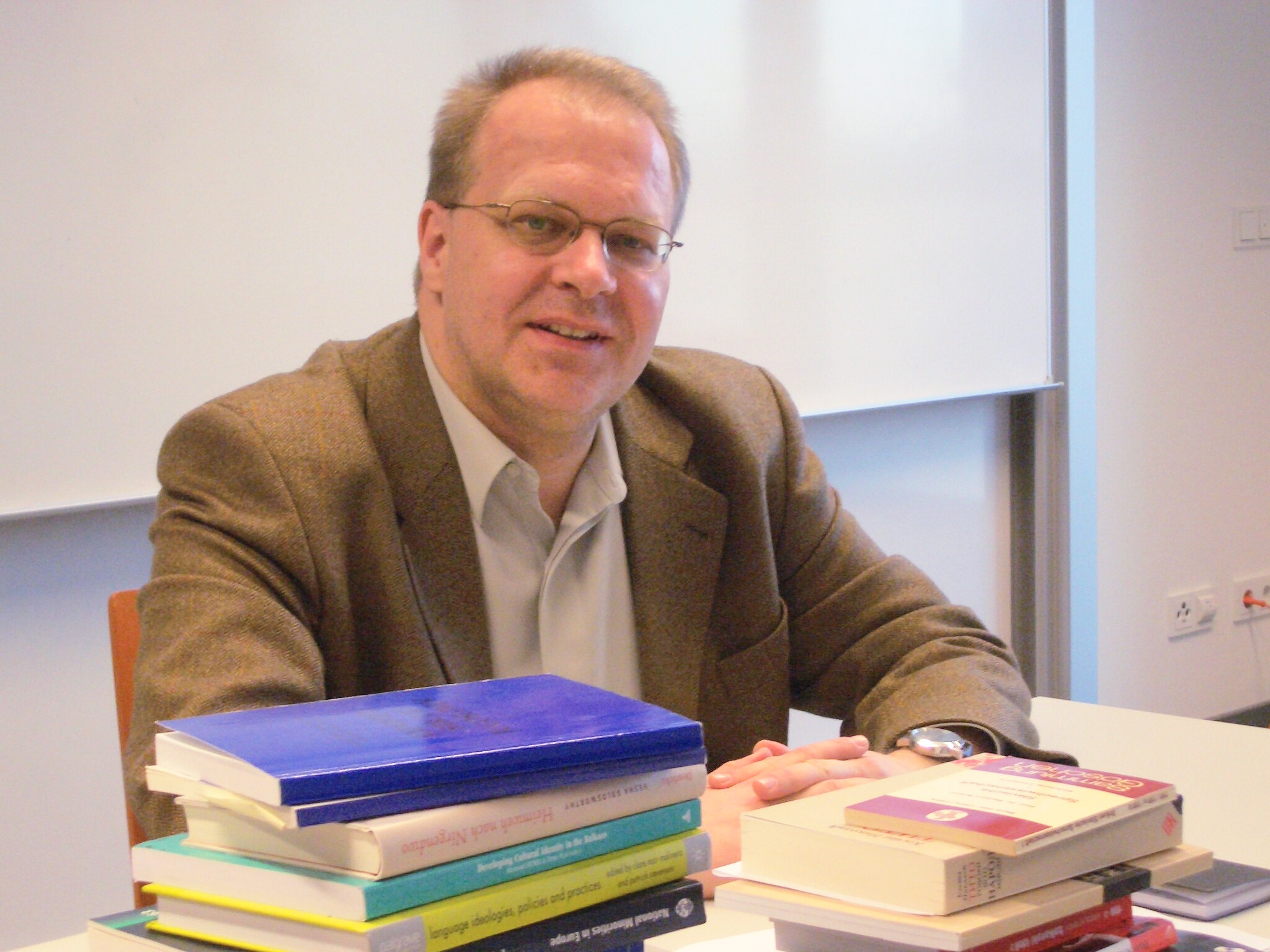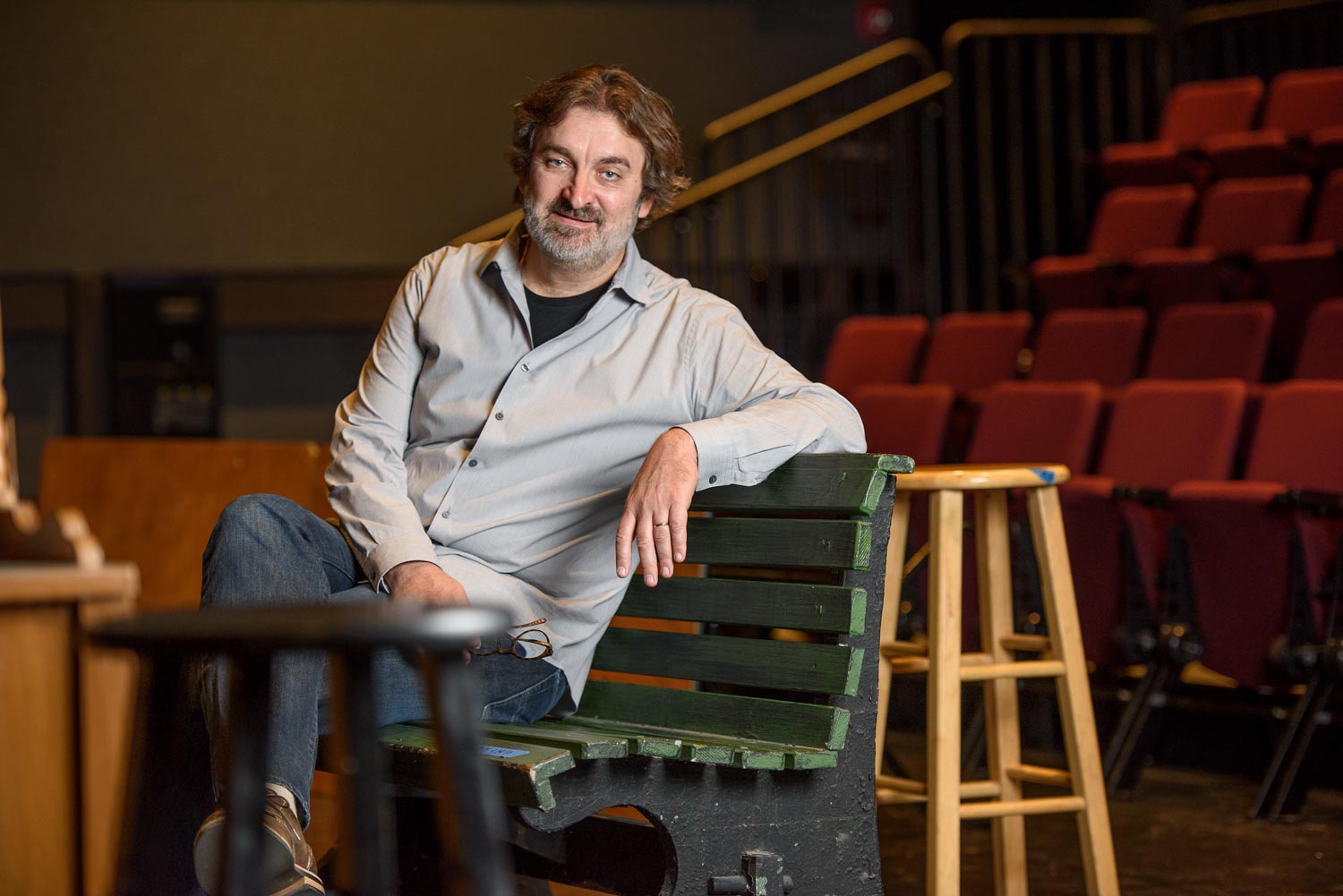As the CAS SEE Spring Fellowship 2020 is coming to an end, we realize that it has been one of the most interesting fellowships so far: we have extended our work into our private spaces instead of leaving them to meet each other in the Moise Palace, to say the least. Because of this reason, of the private and the professional, the “formal” and the “natural” being so interwoven, last Thursday’s lectures felt “on spot”.
On July 2nd, 2020 we heard from Alessandra Scotti, Professor of Bioethics at the Department of Humanities of University of Naples who began her presentation with what she calls “a forceful division between the human subject and natural objects”, stressing out that “the current environmental crisis requires a new reflection on the human relationship with Earth, one that can find valuable support in phenomenological thinking”. She went on to give us insight into “how Merleau-Ponty’s philosophy of nature and his notion of flesh can offer important support, both methodological and ontological, to ethical studies on the environment and the ecological crisis”. Scotti’s project consists of “a theoretical inquiry involving the rethinking of the problem from an ethical and political point of view, through an ontology of the visible. Its purpose is to contribute to: a) a new centrality of the corporeality; b) the building-up of a bodily ecology as a way to an environmental ethic; c) the analysis of social phenomena through the concept of visible”.
After Scotti’s “ecological thinking”, our next Fellow presenter, Xenia Chiaramonte, a jurist and a sociologist of law, took over in the most natural fashion and sense, beginning her presentation with a question about the economy of nature and its legal context. “In most cases”, Chiaramonte pointed out, “law is used against grassroots movements, and protests are criminalized. Ecological struggles are widespread around the world, but they are discouraged from employing the law to advance their rights, as the law seems to be a tool for the ‘Haves’ rather than an instrument for ‘First Players’. Yet, people mobilize and they ask for climate justice. Admittedly, the most recent studies on law and social movements demonstrate the positive influence of strategic use of the law to advance the rights of nature and populations, especially when they are subject to a restriction”. Reminding us of the fact that “law is a technique, a means, and as such, it can serve several masters”, Chiaramonte proposes to explore “the instituent ability of legal means and apply it to the rights of nature”. Xenia Chiaramonte teaches Critical Criminology at the University of Padua and Bologna.

